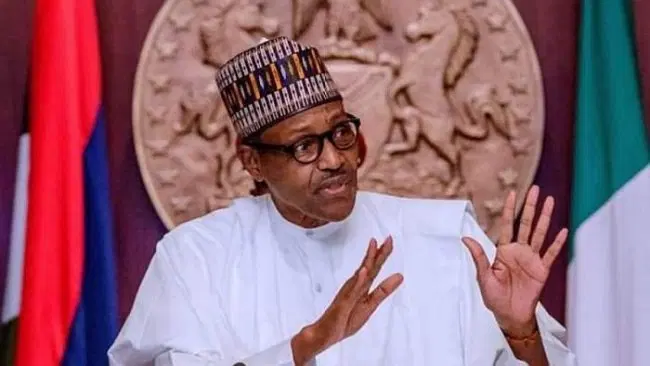APC governors urge Buhari to convince Malami, Nwajiuba not to leave the party

On Tuesday, April 8, a group of governors from the ruling All Progressives Congress (APC) visited former President Muhammadu Buhari at his residence in Kaduna. The visit, led by the Governor of Imo State, Hope Uzodimma, who is also the Chairman of the All Progressives Governors Forum, aimed to discuss critical matters concerning the future of the party.
During their closed-door meeting, the governors commended Buhari for his leadership and the significant achievements made during his presidency, which they said laid a solid foundation for Nigeria’s future development. However, behind the public visit, the governors had a more pressing concern: they sought Buhari’s help to convince his loyalists, including prominent figures like former Minister of Justice, Abubakar Malami, and former Minister of State for Education, Chukwuemeka Nwajiuba, not to leave the APC.
The plea from the governors comes amid growing rumors that several key figures in the APC, particularly those associated with the defunct Congress for Progressive Change (CPC)—which played a major role in forming the APC—are considering switching to the Social Democratic Party (SDP). The governors feared that if these influential figures, including Buhari’s loyalists, were to leave, it could have dire consequences for the APC, especially as the party looks ahead to the 2027 general elections.
Speculation about defections has already been confirmed with the departure of former Kaduna State governor, Nasir El-Rufai, who reportedly received Buhari’s blessing to join the SDP. Additionally, several former ministers from Buhari’s cabinet are said to be planning a mass defection to the SDP, and even in Buhari’s home state of Katsina, some APC members have already made the switch.
The governors, deeply concerned about the potential impact on the party, specifically asked Buhari to reach out to Malami and Nwajiuba to persuade them to remain in the APC. However, a source close to the discussions revealed that Buhari appeared reluctant to interfere with the decisions of his loyalists, stating that individuals like Nwajiuba should be free to make their own political choices. The former president, known for his hands-off approach to such matters, maintained that he would not influence anyone’s decision regarding their party affiliation.
Buhari’s response has raised questions about the future of the APC and whether it can maintain its unity in the face of such internal challenges. The meeting took place at a time when the APC is grappling with internal disputes, particularly over the party’s presidential candidate selection process, which has caused significant tension, especially among those from the CPC bloc.
As the APC moves closer to the 2027 elections, the potential defection of high-profile figures like Malami, Nwajiuba, and others could weaken the party’s standing. This has led to increased concerns within the APC leadership, prompting the governors to make their urgent appeal to Buhari.
While Buhari’s decision to distance himself from the matter may reflect his commitment to allowing individual freedom in political choices, the APC’s future remains uncertain as it faces these internal struggles and external pressures.





